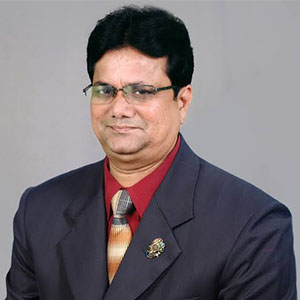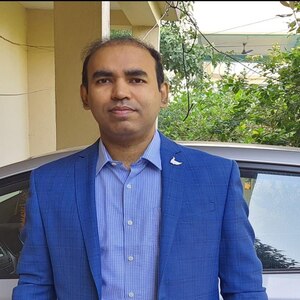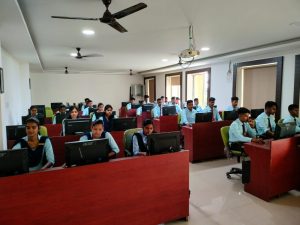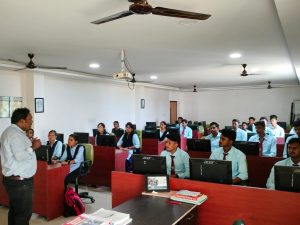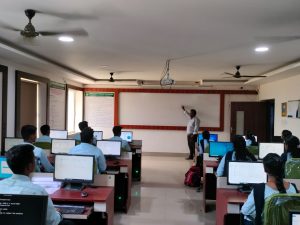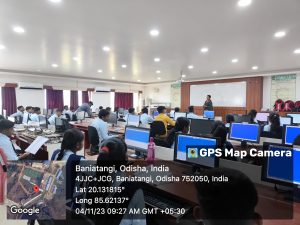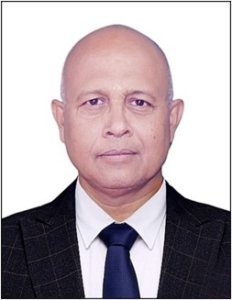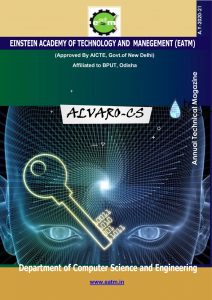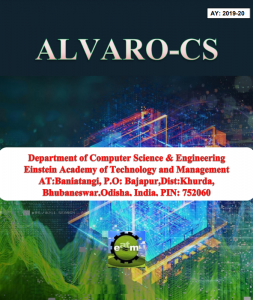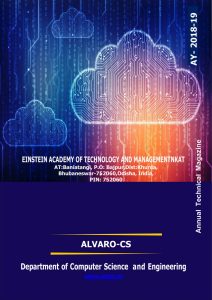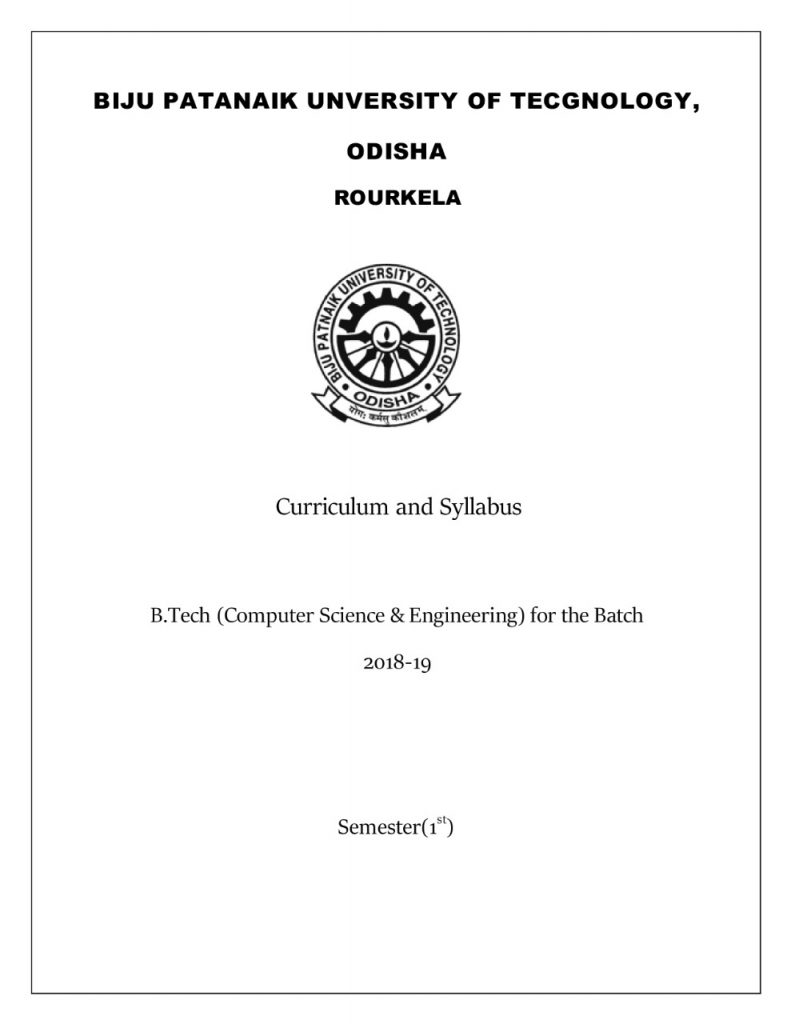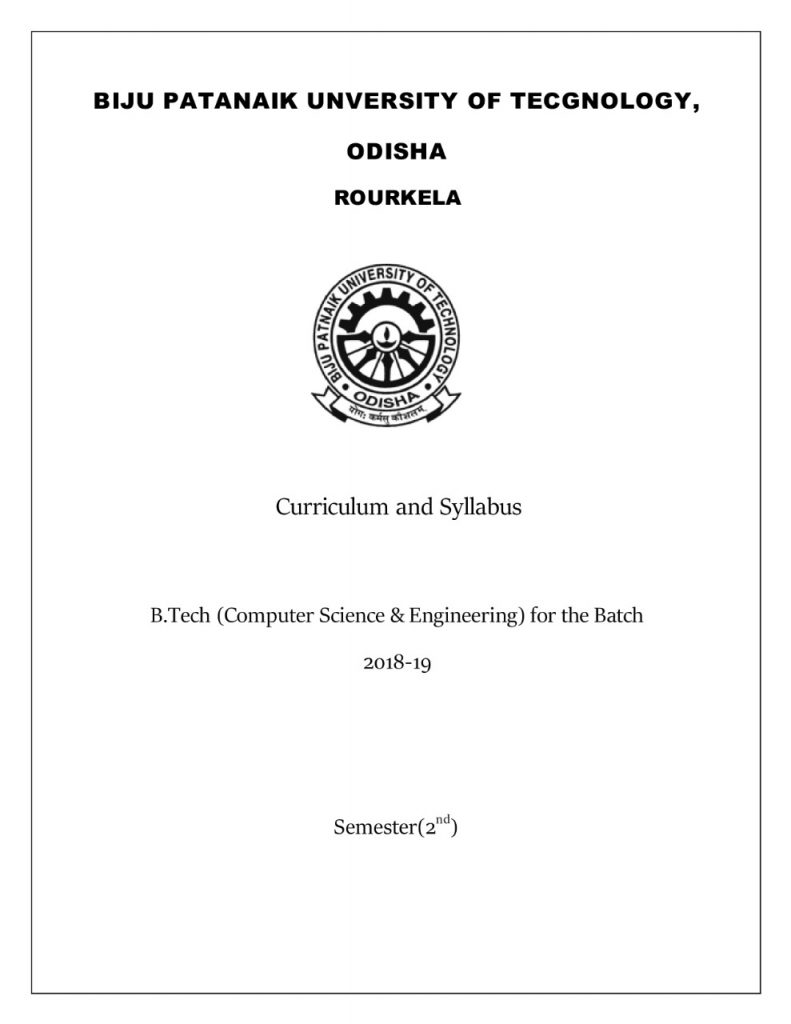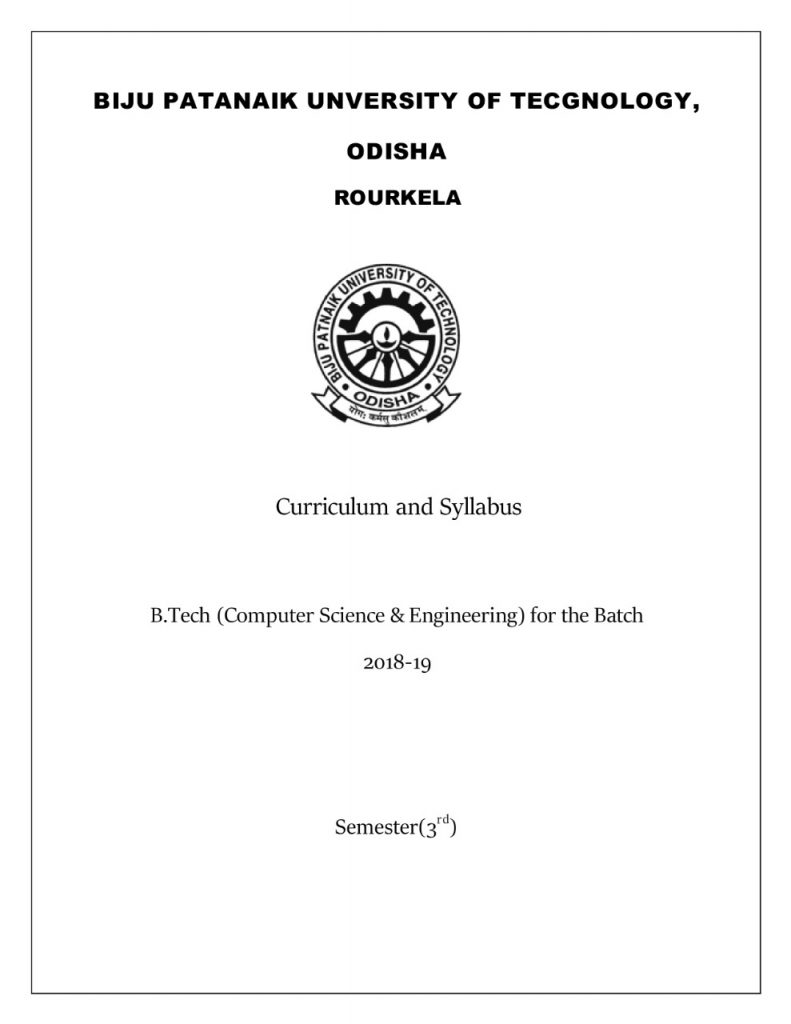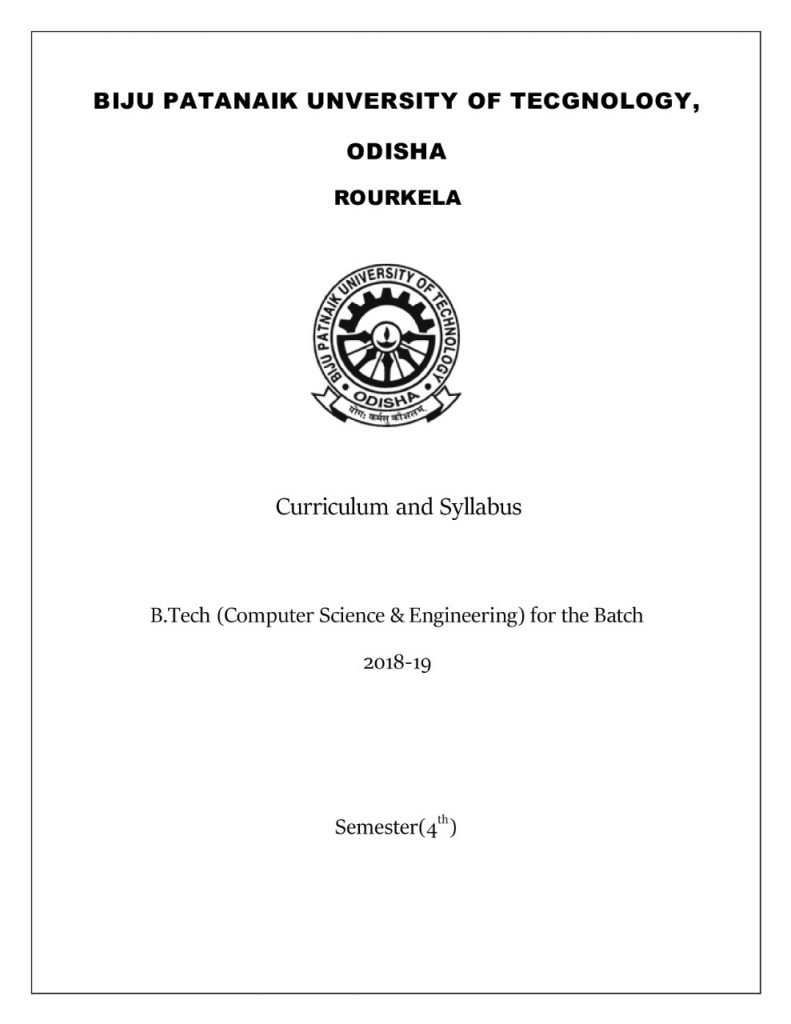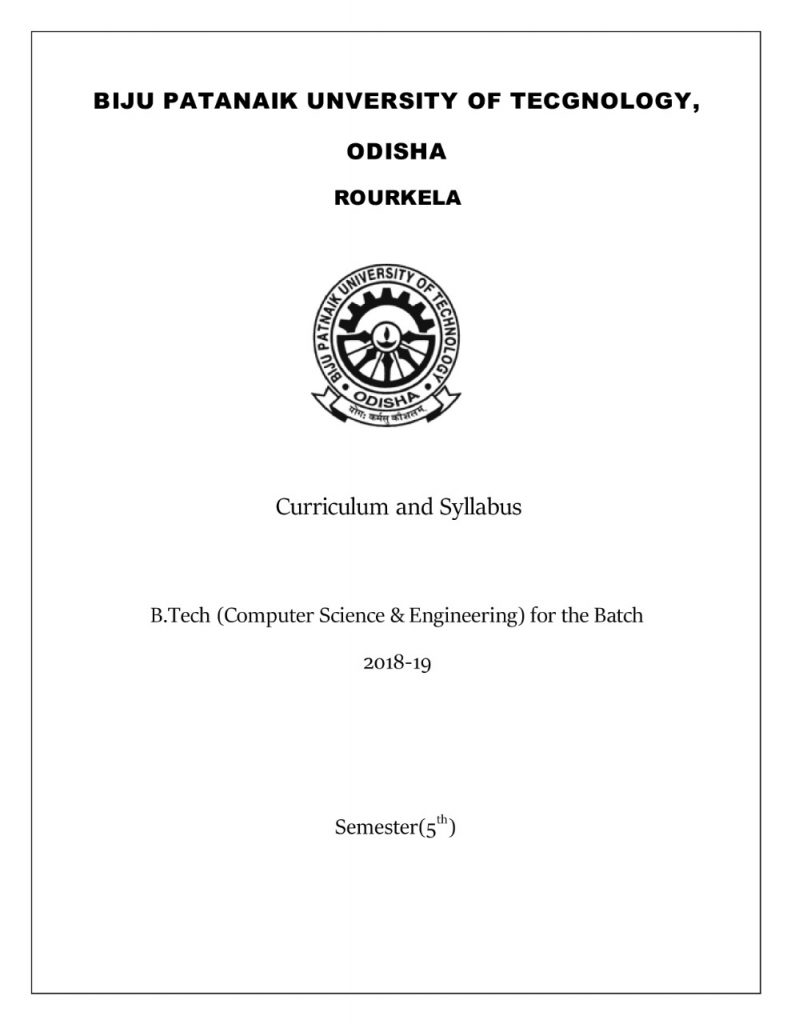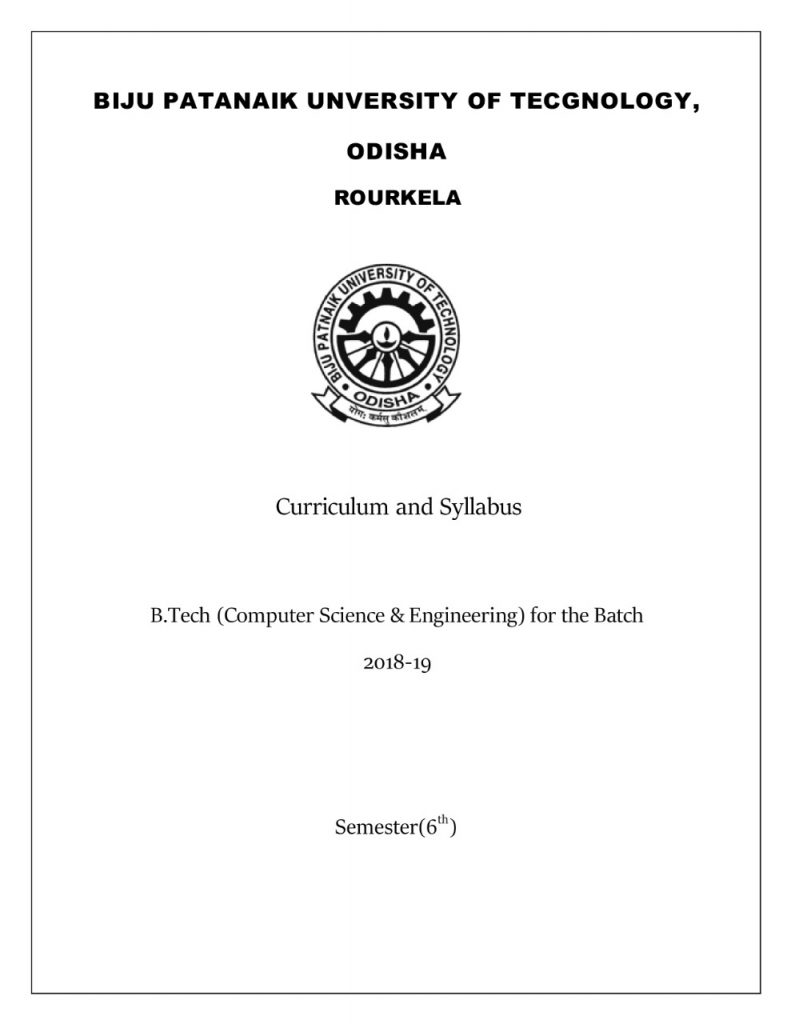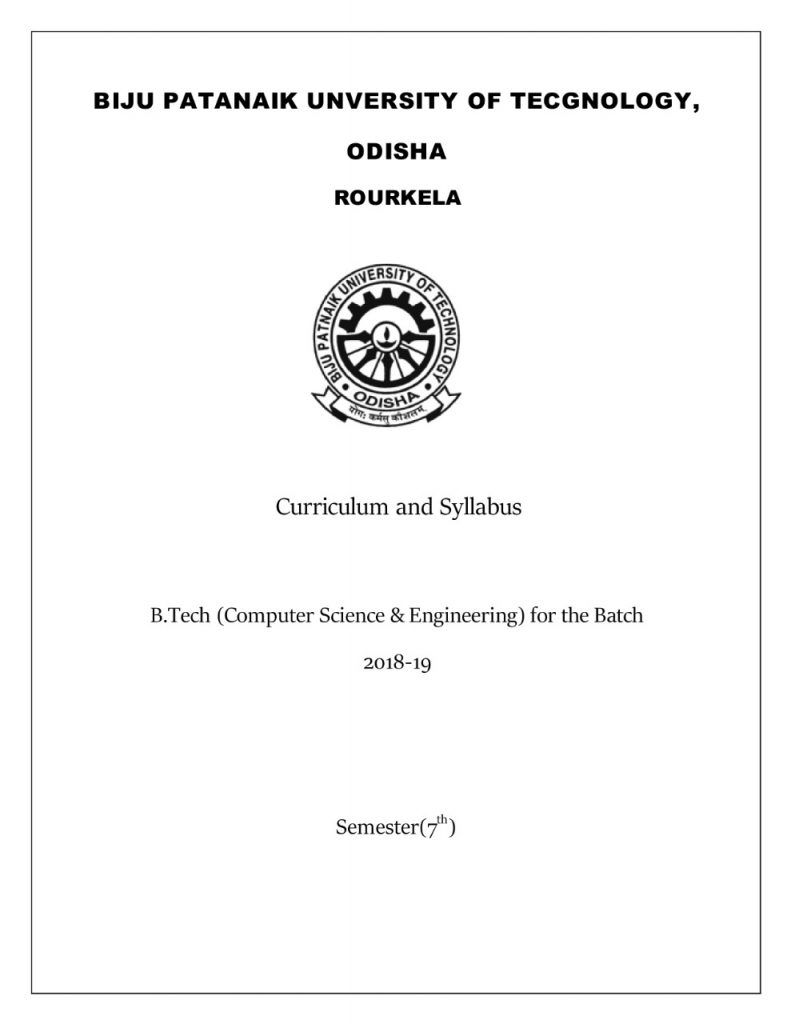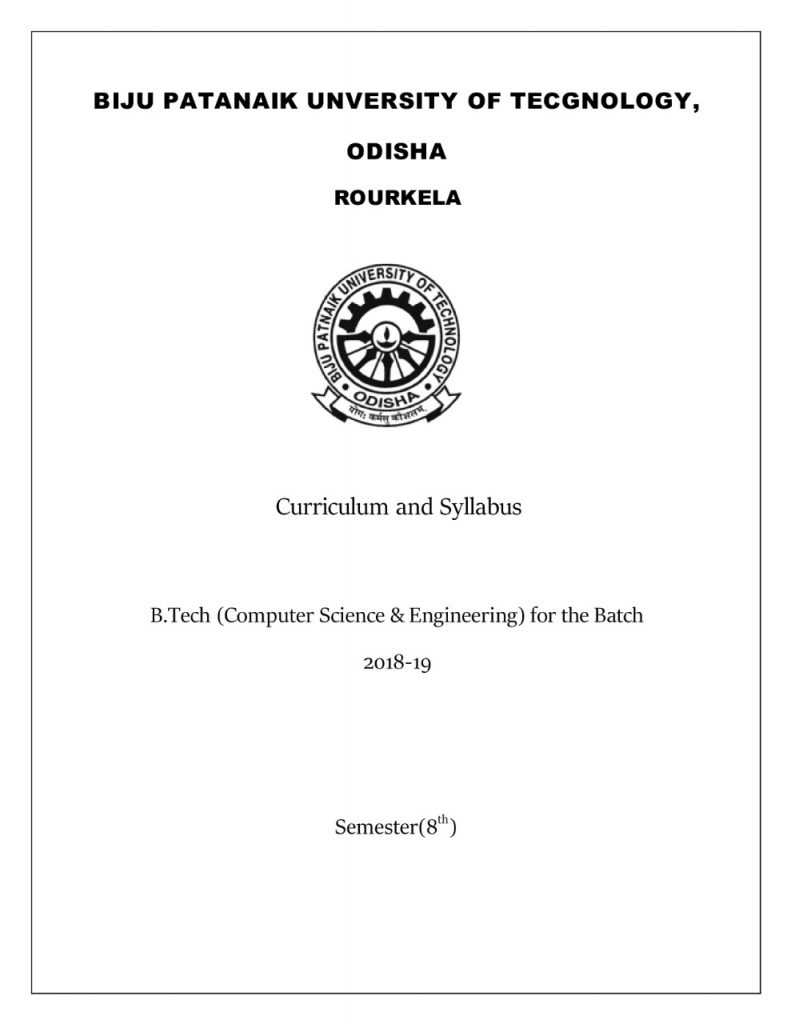Computer Science And Engineering
- Introduction
- HOD’s Message
- Faculty Members
- Vision & Mission
- Courses Offered
- COs
- POs
- PEOs & PSOs
- PAC & DAB
- Laboratory Facilities
- Department Library
- Opportunities
- Achievements
-
Seminar, Workshop,
Conference, FDP, STTP - Value Added Courses
- Lecture Notes
- Gallery
- E-Magzine
- Syllabus
- Student Project/Internship
The Department of ComputerScience & Engineering (CSE) was established in the year 2009 and is one of the core department in college. Currently, it has 24 faculty members and around 427 students working towards their Bachelor’s, Degree Courses. In addition, it actively participates in select off-campus programme. The department attracts high quality students from all over India and has an impressive placement record. Many of graduates choose to join some of the best institutions of higher learning around the world, whereas some prefer to gain a few years of work experience before deciding their next course of action. One of the strengths of the department is its strong entrepreneurial culture and many students have successfully involved themselves in creating entrepreneurial ventures some of which have gone fully commercial within a short span of time. While some such students benefit from the on-campus Technology Business Incubator provided by the Institute, some others choose to create virtual organizations to keep the costs low and later move onto the regular business models.
In the recent past, The Department of Computer Science offers programs of study related to computing, information technology and software design and application. Our programs involve interdepartmental, multi-institutional and inter-institutional collaboration and have attracted faculty members, undergraduate and graduate students from all over the world. The Department of Computer Science was founded by people who had a vision. This vision was how computer science would fit into the unique spirit of BPUT, an institution oriented to an unusual degree around undergraduate education and close interdepartmental collaboration. The Department has always had close ties to mathematics and engineering, but has increasingly experienced collaborations with other disciplines important to BPUT, including psychology, linguistics, economics, business, statistics, music, medicine, physics and more. It is through these collaborations that the importance of computer science in a broader sense is best appreciated.
I would like to extend my warmest welcome to the Department of Computer Science and Engineering at Einstein Academy of Technology & Management, Baniatangi, Khurda of Odisha state, India. We Pride ourselves on being pioneers to educate tomorrow’s visionaries, conduct cutting-edge research, and lead a broad range of initiatives that validate transformative power of Computer Science & Engineering. The Department of Computer Science and Engineering has recorded consistent improvement in its academic research and placement performance. It offers a range of innovative designed value added courses whose curricula are constantly updated to meet the changing requirement of the industry and also to meet the needs of the stake holders.
Through educational leadership, research and development, intellectual partnerships and community outreach, we seek to improve our student’s knowledge and ability to work in the Industry or as an independent entrepreneur. We believe that our students have been well accepted in their job profiles and have consistently exceeded expectation of the corporate world. The Department is proud to be part of a strong alumni network, many of whom hold influential positions in the Information Technology Industry and academia. We look forward to having talented students, researchers, academicians and professionals join us and competitive learning atmosphere we have on campus.
Prof (Dr.) Biswajit Tripathy.
Vision
To achieve excellence in the field of computer science and engineering with a goal to create state-of-the-art technocrats to address the future challenges in this fast growing technological world.
Mission
M1: Imparting innovative quality education, viz. strong fundamental concepts, analytical capability, programming and problem solving skills, to meet the technological and socio-economic needs of the region and the country as well.
M2: Facilitating in-house value added courses and professional trainings with an emphasis on basic principles of Computer Science and Engineering.
M3: Encouraging students for higher studies to inculcate research activities in emerging areas of science and technology.
M4: Promoting industry-institute interaction for the enhancement of technical and entrepreneurial skills.
Under Graduate (B. Tech) | Computer Science & Engineering (240 Intake) |
Programme Outcomes (POs)
PO1: Engineering knowledge: Apply the knowledge of mathematics, science, engineering fundamentals, and an engineering specialization to the solution of complex engineering problems.
PO2: Problem analysis: Identify, formulate, review research literature, and analyze complex engineering problems reaching substantiated conclusions using first principles of mathematics, natural sciences, and engineering sciences
PO3: Design/development of solutions: Design solutions for complex engineering problems and design system components or processes that meet the specified needs with appropriate consideration for the public health and safety, and the cultural, societal, and environmental considerations.
PO4: Conduct investigations of complex problems: Use research-based knowledge and research methods including design of experiments, analysis and interpretation of data, and synthesis of the information to provide valid conclusions.
PO5: Modern tool usage: Create, select, and apply appropriate techniques, resources, and modern engineering and IT tools including prediction and modeling to complex engineering activities with an understanding of the limitations.
PO6: The engineer and society: Apply reasoning informed by the contextual knowledge to assess societal, health, safety, legal and cultural issues and the consequent responsibilities relevant to the professional engineering practice.
PO7: Environment and sustainability: Understand the impact of the professional engineering solutions in societal and environmental contexts, and demonstrate the knowledge of, and need for sustainable development.
PO8: Ethics: Apply ethical principles and commit to professional ethics and responsibilities and norms of the engineering practice.
PO9: Individual and team work: Function effectively as an individual, and as a member or leader in diverse teams, and in multidisciplinary settings.
PO10: Communication: Communicate effectively on complex engineering activities with the engineering community and with society at large, such as, being able to comprehend and write effective reports and design documentation, make effective presentations, and give and receive clear instructions.
PO11: Project management and finance: Demonstrate knowledge and understanding of the engineering and management principles and apply these to one’s own work, as a member and leader in a team, to manage projects and in multidisciplinary environments.
PO12: Life-long learning: Recognize the need for, and have the preparation and ability to engage in independent and life-long learning in the broadest context of technological change.
Program Educational Objectives (PEOs)
PEO 1: Excellence in Computer Science and Engineering and entrepreneurship through compilation of the knowledge from mathematics, engineering fundamentals and computation.
PEO 2: Capable to design innovative solutions to real life problems those will be technically visible, economically viable and socially acceptable.
PEO 3: Implement the knowledge in establishing effective communication, organizing team work, and serving ethical responsibilities with a frame of mind towards lifelong learning.
Program Specific Outcomes (PSOs)
PSO1: Able to apply the knowledge gained during the course of the program from mathematics, basics computing, basic science and social science in general and all computer science courses in particular to identify, formulate and solve complex engineering problems faced in industries and during research work with due consideration for the safety and needs of the society and environment.
PSO2: Able to provide socially acceptable technical solutions to complex computer science engineering problems with the application of programming languages, software engineering skills and newly developed techniques in the field of computer society.
Able to apply the knowledge gained during the course of the program from mathematics, basics computing, basic science and social science in general and all computer science courses in particular to identify, formulate and solve complex engineering problems faced in industries and during research work with due consideration for the safety and needs of the society and environment.
Able to provide socially acceptable technical solutions to complex computer science engineering problems with the application of programming languages, software engineering skills and newly developed techniques in the field of computer society.
Department Library has an extensive collection of books, technical and technical journals, and electronic reference material, which is updated regularly. The Library and Information Centre consists of a Reference Section, Circulation Section, Audio-visual Section, Periodical Section, Book Bank, and Digital Library.
Bachelor of Technology (B.Tech) after 12th in Science is a 4-year undergraduate program. This is one of the most opted computer science courses in India.
It is because the course curriculum is designed in a way that incorporates the basics and fundamentals of all the domains and sub-topics of Computer Science. Hence, the course offers knowledge in diverse fields and the student has numerous options to build a career in any one of the disciplines.
Mode of Learning- Both these courses are quite technical and highly advanced in terms of their curriculum and need regular practical learning. Therefore, BE and B.Tech courses are available only in offline mode. The government has not approved any online BE/B.Tech courses.
P.S- There are hybrid (online + offline) B.Tech courses but only for working professionals. So, immediately after 12th class, you can pursue BE/B.Tech only in the offline mode.
Duration- Both the BE and B.Tech courses are for a duration of 4 years. The course curriculum is divided into 8 semesters of 6 months each.
Eligibility- The eligibility criteria for admission in BE/B.Tech in Computer Science courses is that the applicant must have passed class 12th with Physics, Chemistry, and Mathematics as core subjects and with a score of at least 50% aggregate marks (or an equivalent grade) from a recognized board of education.
Career Prospects- BE/B.Tech in Computer Science is a job-oriented course, so you can directly get jobs related to software engineering in the Computer Science and IT departments of companies or in companies that have tech-based products.
However, the course also offers options for further studies. You can go for a postgraduate program in a particular discipline you want to specialize in and build your career. For example, after a B.Tech in Computer Science, if you are interested in the field of Cloud Computing, then you can go for a postgraduate course in Cloud Computing.
Job Roles and Salary- Given below are the prospective job roles after B.Tech in Computer Science and their respective average base salaries.
- FACULTY
- STUDENTS
Number of workshops / seminars conducted
List of Professional Societies/Chapters and Organizing Engineering Events



